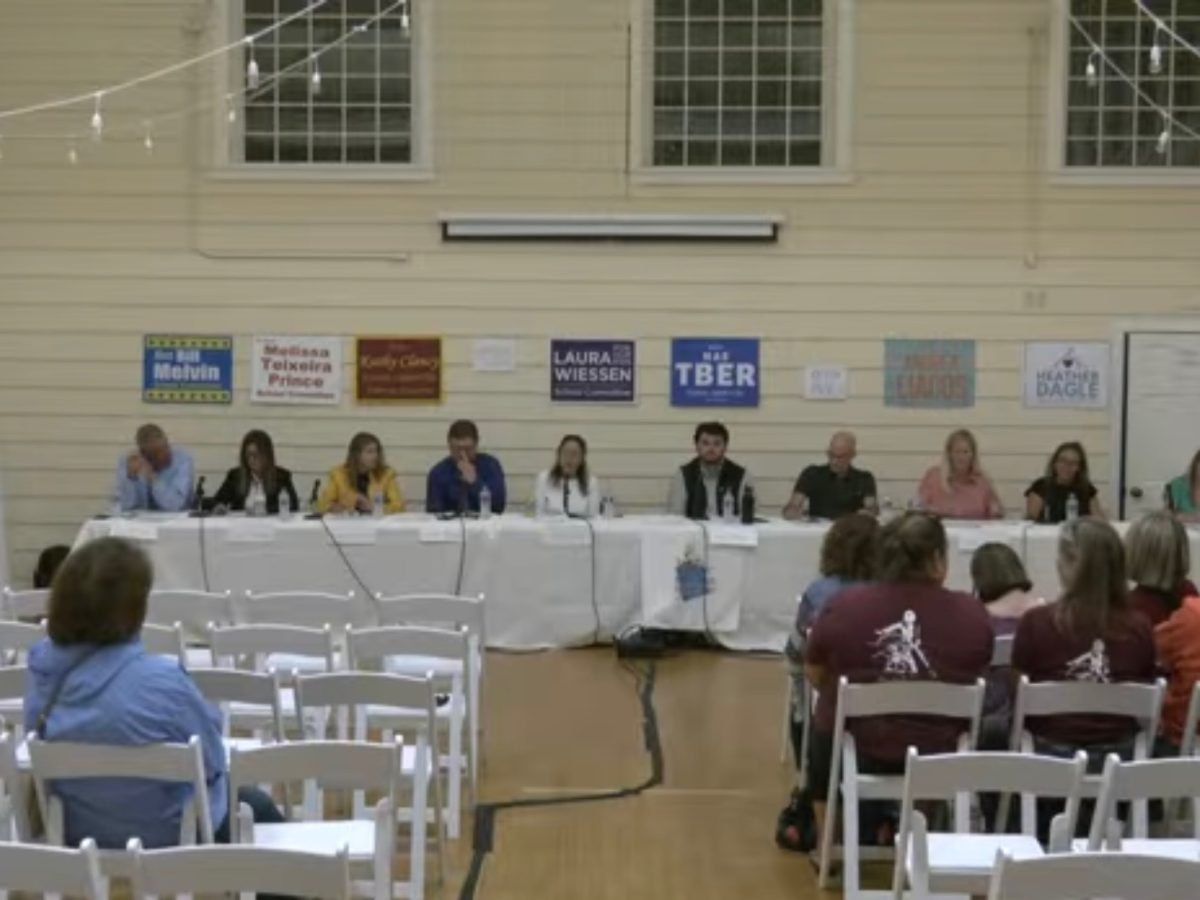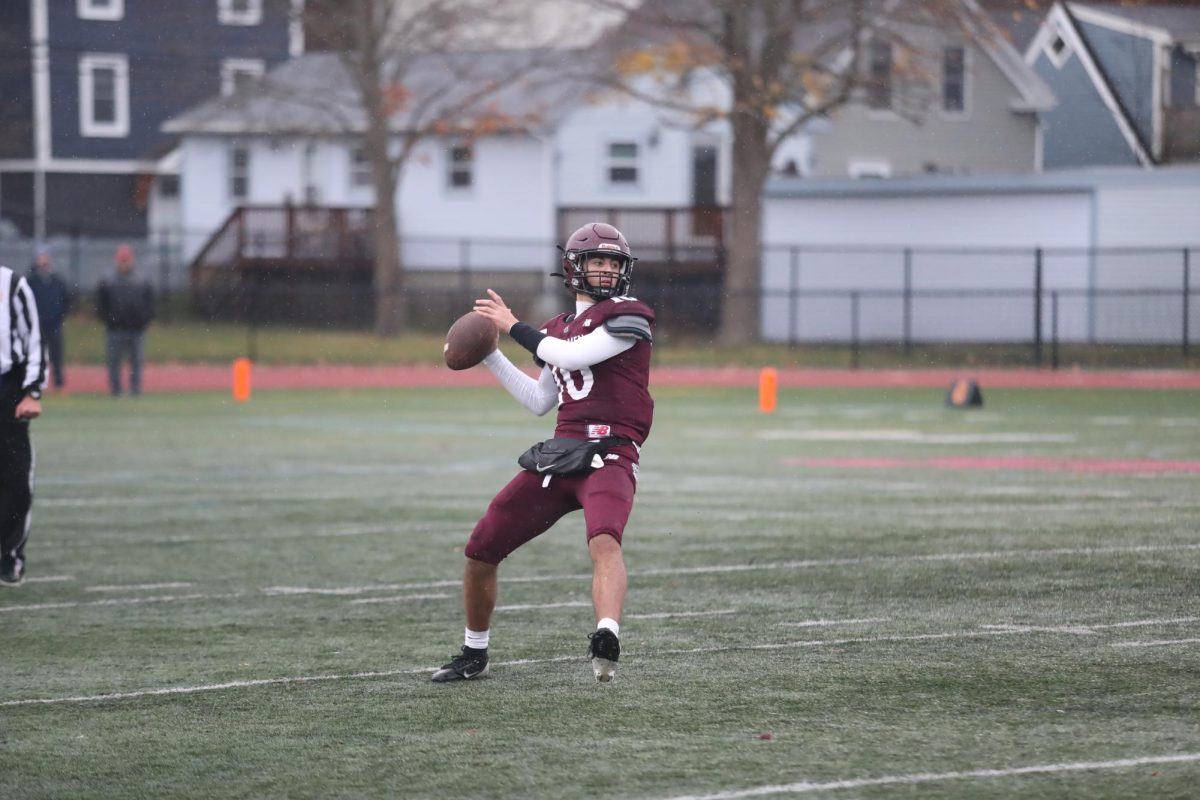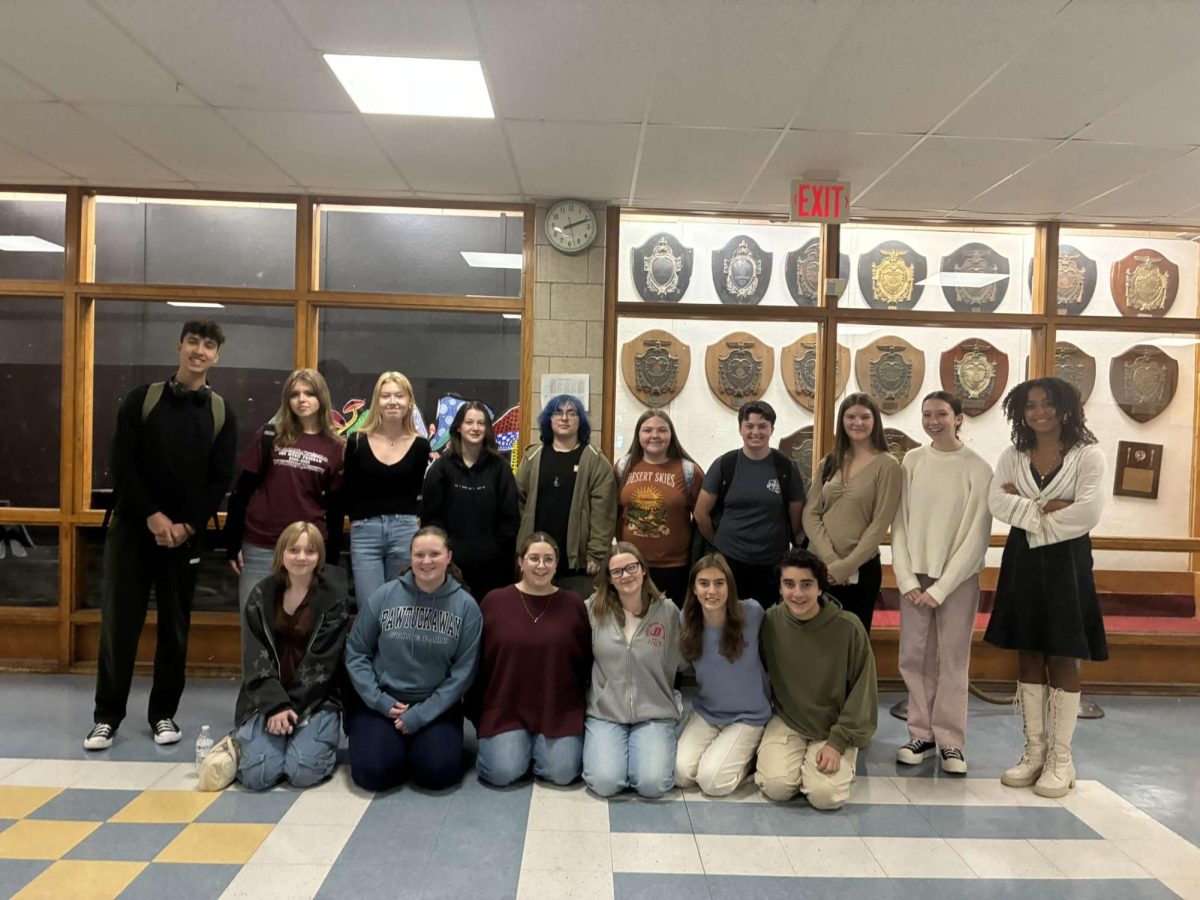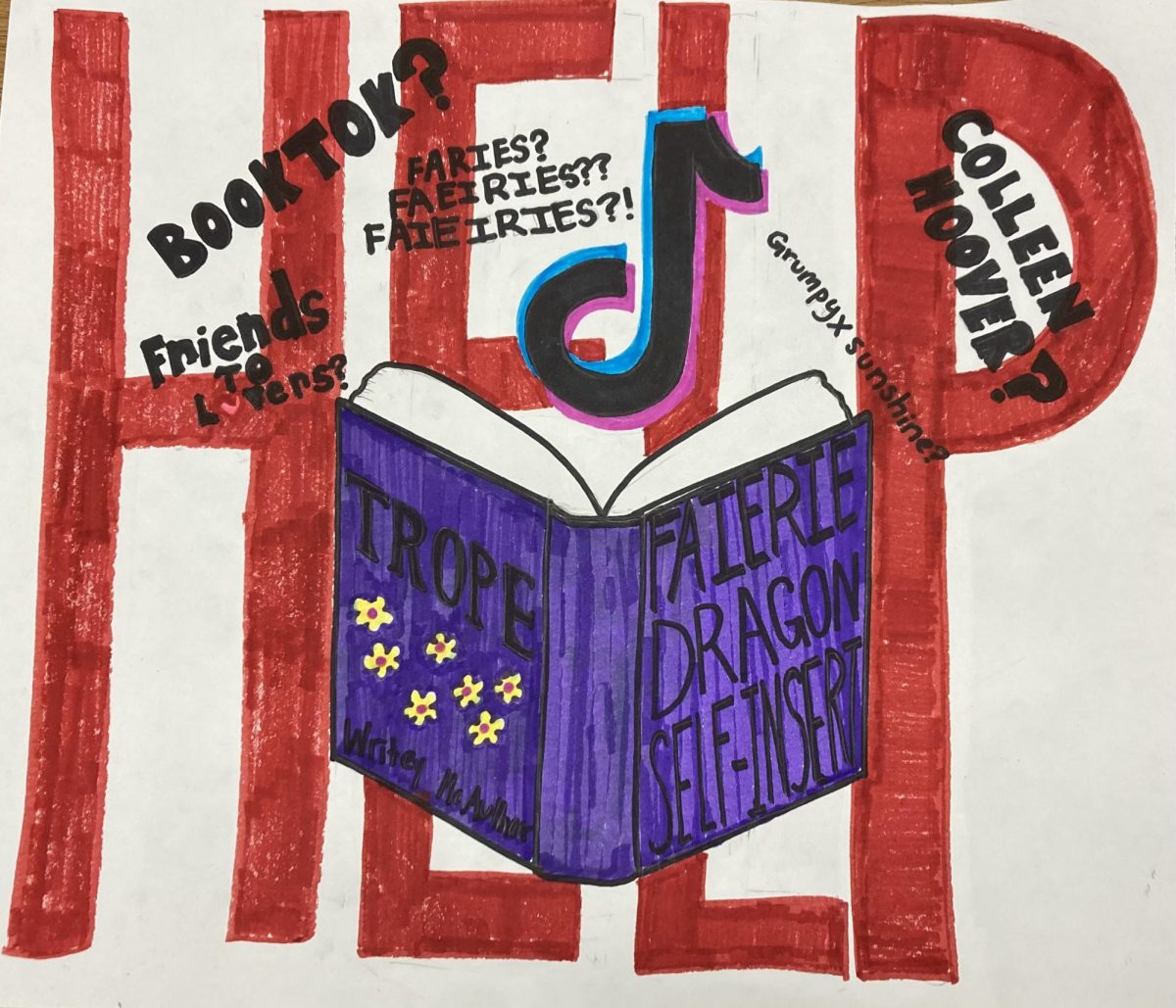Contrary to popular belief, the era of reading is not over. If you’re someone who enjoys literature and has been on TikTok in the past year or so, you’ve probably come across book-related content at some point. This slice of TikTok has been dubbed “Booktok” by users. Booktok is a flourishing community on the app—authors, readers, and publishing industry pros alike have been logging on and uploading videos of their monthly reading lists, upcoming debut novels, and extensive and detailed book recommendations.
The New York Times reported in July of 2022 that during- and post-pandemic, bookstores have seen record increases in sales, and that hundreds of new bookstores have opened and are planning to open in the past few years. Membership in the American Bookstore Association has continued to rise, and Gloucester’s own independent bookstore, The Bookstore of Gloucester, has seen an increase in sales over the past year.
This uptick in reader interest is owed in part to Booktok, and similar online communities across the internet. At The Bookstore of Gloucester, copies of Booktok favorites like “Fourth Wing” and “Yellowface” are big sellers. At Barnes and Noble, a popular chain bookstore, there are often displays labeled “Booktok”, piled high with online fan favorites.
Booktok has allowed a new generation of readers to gather in a single space and exchange information and ideas. But, like anything else, Booktok has some major problems.
Because it is an online space, Booktok is led by influencers. The role of the influencer is to convince you to invest your money and time in a product, and Booktok is no exception. When an influencer recommends a book, they are marketing to you. And because they’re marketing to you, they fall into the habits of an advertiser.
The problem with Booktok is that it encourages influencers to market books based on tropes, not the books themselves. You might see someone online recommend a book based on the tropes it contains—“enemies to lovers”, “arranged marriage”, “love triangle”, etc—and not based on its plot or characters. It’s much simpler to invoke a catchy buzzword or two than it is to spend time constructing an attention-grabbing plot summary when you’re trying to convince someone to read something.
Because social media marketing is effective and cheap, many aspiring authors are on Bootok, and can see the kind of content that generates mass hype. Authors notice these patterns. And worse, authors start to write books based around tropes. There is a subsection of Booktok that seems to be primarily concerned with whether or not books have sex scenes or whether or not X plot point happens, and less concerned with the actual quality of the writing or whether or not these plot points make sense in-story.
Recently, there was “Icebreaker”, by Hannah Grace, a hockey romance that was said by several users to be about 90 percent smut/fan-service and 10 percent actual plot. The “Twisted” series by Ana Huang is another – one of the books is so popular on social media, it is listed as “Twisted Lies: the TikTok Sensation!” on Amazon. The “Twisted” series is often marketed via its morally grey bad boy love interest. I have seen this book mentioned dozens of times, and after all those videos, I have no idea what the plot is or what any of the characters’ names are.
Rather than writing a story and allowing it to flow in an interesting and organic direction, several of these TikTok-famous authors seem to treat books like checklists, shoe-horning in popular tropes for the sake of having them there. These books seem to focus less on constructing an engaging world or exploring a theme, and more on trying to make their books as appealing as possible for online audiences.
Booktok also has an R-rated problem. It seems that under any video of an author marketing their debut series, under any video listing popular book recommendations, someone will inevitably comment, “does it have spice?”. “Spice” is a euphemism for sex, and seems to be an entry-level requirement for many Booktok readers to get invested in a new book. Many of these books (Colleen Hoover comes to mind) use sex scenes as a way to romanticize abuse and convince the reader to root for a deeply toxic couple, rather than as a way to further the narrative and develop characters. This is the definition of fan-service: when an author includes a sex scene in their book for the benefit of the reader, not the benefit of the plot.
It is important to note that this by no means applies to all of BookTok. Much of BookTok is people talking about their favorite reads, what classics are worth it, and their “literary hot takes” in relative peace. Many of the books that generate hype on TikTok are extremely high-quality and engaging reads, spanning genres and age ranges. The problem is that many of these fabulous books get overshadowed by discourse about books like the ones mentioned above. At its core, this is a publishing issue: when copy-paste fantasy series and sloppily constructed romances get big book deals, they begin to sideline and push out other stories, creating a self-perpetuating cycle where book quality and reader experience suffer.
The rise of hustle culture may be the root of this problem. Writing is becoming a side hustle for most authors, as cost of living rises and book deals remain scant. Our culture is in an age obsessed with efficiency, of optimizing and “maxxing” yourself and your abilities.
AI has made it even easier to do this. With the release of ChatGPT, all a writer needs to do is write an outline, provide a sample, and in seconds you have a 3,000 word chapter that sounds sort of like you. Writing around tropes is certainly much faster than writing a painstakingly crafted original narrative. But in the world of literature, faster is not always better.
Which brings us to Booktok’s other problem: overconsumption.
Remember what I said about the role of the influencer being to sell the public products? More often than not, this influencer-consumer relationship encourages not only consumption, but overconsumption as well, as influencers (whether intentionally or unintentionally) push reading trends that require users to have a physical copy of a book to participate in.
BookTok is extremely concerned with aesthetics. Within the community, there is a subsection of highly stylized and tailored videos, where people use pastel highlighters and inky pens to mark up their favorite passages and post them to appropriately trendy music, where people show off their color-coordinated bookshelves full of special-edition books with embossed covers that they already own multiple copies of. This kind of content aims to romanticize reading, and while I have no quarrel with aesthetically pleasing book-related content, there is something slightly sinister about every BookTok trend seeming to exclude those who use libraries over book stores.
Booktok’s overconsumption problem also affects the publishing world.
“Fourth Wing”, by Rebecca Yarros, is an immensely popular dragon-based fantasy book that, with the help of Booktok, has sold over 2 million copies globally since its release in May of 2023. The sequel, “Iron Flame”, was published in November of 2023, mere months later. This is highly atypical for the publishing industry – usually, fans have to wait a year or more for the next addition to a fantasy series (fans of Percy Jackson: Heroes of Olympus will know what I mean).
Fans found numerous misprints in the text of the sequel, from upside-down paragraphs and maps to missing chunks of text, suggesting it may not have had time to undergo a rigorous enough review process before publishing. It’s obvious what Red Tower Books was aiming to do by publishing “Iron Flame” so quickly: they wanted to capitalize on the online hype before the world moved on to the next big thing in fantasy. The internet, by virtue of being a fast-paced digital landscape, encourages the customer to buy fast, buy a lot, and move on.
But why is buying too many books even a problem? Well chances are, if you’re buying books right now, you’re probably ordering them on Amazon. Amazon rakes in 28 billion dollars a year in online book sales. Currently, they control 80 percent of book sales in the US, and are notorious for undercutting their prices, because unlike most independent bookstores, they can afford to.
Amazon’s strategy is to undercut competitors, buy them out, and then jack up prices again after they monopolize the market. The same thing happened with Diapers.com, a smaller startup that Amazon undercut, outsold, and gutted in the late 2000s. When Amazon was looking to get into the diaper business, they noticed that Diapers.com had developed a system that allowed parents to schedule recurring orders of their products.
What did Amazon do? They undercut Diapers.com by up to 30 percent, rolled out a service called Amazon Mom that provided customers significant discounts and free shipping on family supplies, and eventually acquired Diapers.com’s parent company, Quidsi, in 2010. Amazon took over 200 million dollars in losses in this endeavor, which it could easily make back. After this victory, Amazon shut down Amazon Mom, and jacked up prices again.
Amazon is trying to do this again with the book market. When you buy a cheap book on Amazon, the time draws closer when Amazon gains their monopoly and decides to increase book prices.
The great thing about Booktok is that all of its problems have easy solutions. In the mood to read a new book, but don’t want to give your money to Amazon? Shop from independent bookstores, or head to the library. Locally, there are two indie bookstores in downtown Gloucester alone: The Bookstore of Gloucester and Dogtown Books, both located on Main Street. Disappointed at the influx of low quality, cash-grabby books being pushed by publishers to make money off of consumers? Avoid purchasing these books, and invest your money and time into worthwhile stories.
Rarely does a platform so rife with pitfalls also have such easy ways to avoid them, and for that, Bootok is fortunate. At its core, Booktok is a positive thing. Despite its downsides, Booktok has become a place where book lovers can connect with each other over something they love, and it’s one of the last online spaces where loving something deeply does not get automatically derided as “cringe”. Booktok has made getting into reading easier, more accessible, and most importantly, fun.










![The Volleyball team poses after their win. [Photo courtesy of GHS Volleyball]](https://thegillnetter.com/wp-content/uploads/2025/10/IMG_6936.jpg)


![The GHS/MERHS senior cross country runners pose together on Senior Night. [Photo courtesy of Manchester-Essex Athletics]](https://thegillnetter.com/wp-content/uploads/2025/10/Screenshot-2025-10-10-at-11.18.29-AM.png)



















Karen Harrison • Jan 16, 2024 at 5:58 pm
This is a whole new world to me I did not know about! Thank you for the insight